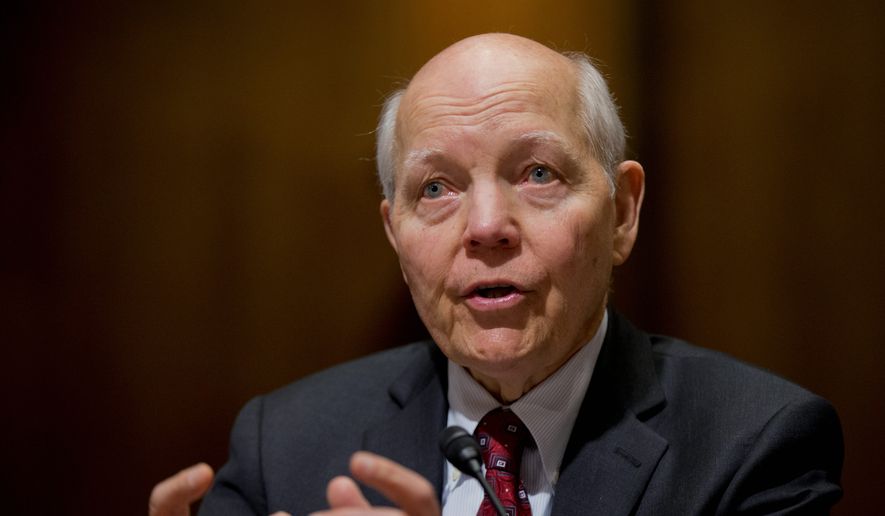Government watchdog groups have filed a motion in federal court to compel the IRS to reveal how it determines when to initiate “church investigations” after accusing the tax-collecting agency of “stonewalling” efforts to bring to light its procedures.
The motion, filed jointly Friday by the Alliance Defending Freedom and Judicial Watch, came in response to a legal settlement struck in 2014 with an atheist organization, which said the IRS had “resolved the signature authority issue necessary to initiate church examinations.”
“The IRS also has adopted procedures for reviewing, evaluating and determining whether to initiate church investigations,” the Freedom From Religion Foundation said in a press release.
But nobody knows what those “procedures” are for conducting “church investigations,” the watchdog groups said.
“The IRS is not above the law, and Americans deserve to know the truth about the agency’s secret deals with activists,” ADF Legal Counsel Christina Holcomb said in a press release. “The IRS has a legal obligation to explain why it is hiding things or else produce documents. Its ongoing refusal to follow the law is absurd, particularly since much of [what] we are asking for is information that the IRS has already provided voluntarily to Freedom From Religion Foundation.”
The IRS began producing documents in July, months after the ADF and Judicial Watch had sued the agency for failing to comply with a Freedom of Information Act request. But even then the agency withheld more than 10,000 of the 16,000 requested documents, and thousands of the released documents were completely redacted, according to the ADF.
PHOTOS: Christians in Hollywood
“The Obama IRS first ignored the ADF FOIA request and is now stonewalling in federal court,” Judicial Watch President Tom Fitton said in a press release. “The public has a right to know about any new IRS guidelines for investigating the practice of our basic First Amendment freedoms.”
The IRS could not be reached for comment by press time.
In its 2014 lawsuit the atheist group demanded that the IRS enforce the Johnson Amendment, which prohibits tax-exempt organizations from making political endorsements for elected office. It authorizes the IRS to regulate sermons and other speech to ensure churches comply with the provisions of their designations.
Legal scholars have speculated that the tax-exempt status of churches and other religious groups may be vulnerable in light of the Supreme Court ruling in Obergefell v. Hodges, which struck down state laws banning same-sex marriage.
During oral arguments, Associate Justice Samuel Anthony Alito Jr. asked Solicitor General Donald B. Verrilli Jr. whether religious entities that subscribe to the traditional view of marriage would be at risk of losing their tax-exempt status should the laws banning same-sex marriage be struck down.
“It’s certainly going to be an issue,” Mr. Verrilli said. “I don’t deny that.”
PHOTOS: Best states for concealed carry — ranked worst to first
Given the IRS’ alleged targeting of conservative and tea party groups, some members of Congress have expressed concern about the church investigation procedures.
A 2014 letter to IRS Commissioner John Koskinen signed by nine members of Congress asked the agency to provide a copy of the rules for investigating churches.
“Our country has a long history of religious leaders speaking freely on matters of public discourse,” the letter reads. “Whether it is Rev. Martin Luther King Jr. leading the charge against segregation, or preachers opposed to the Vietnam War, Americans expect their religious leaders to be able to speak freely to their flock without government oversight. The recent agreement by the IRS seems to impinge on these fundamental rights protected by the First Amendment’s guarantee of freedom of religion, speech, and assembly.
“We are deeply troubled by these allegations and would like your assurance that these claims are false.”
• Bradford Richardson can be reached at brichardson@washingtontimes.com.




Please read our comment policy before commenting.